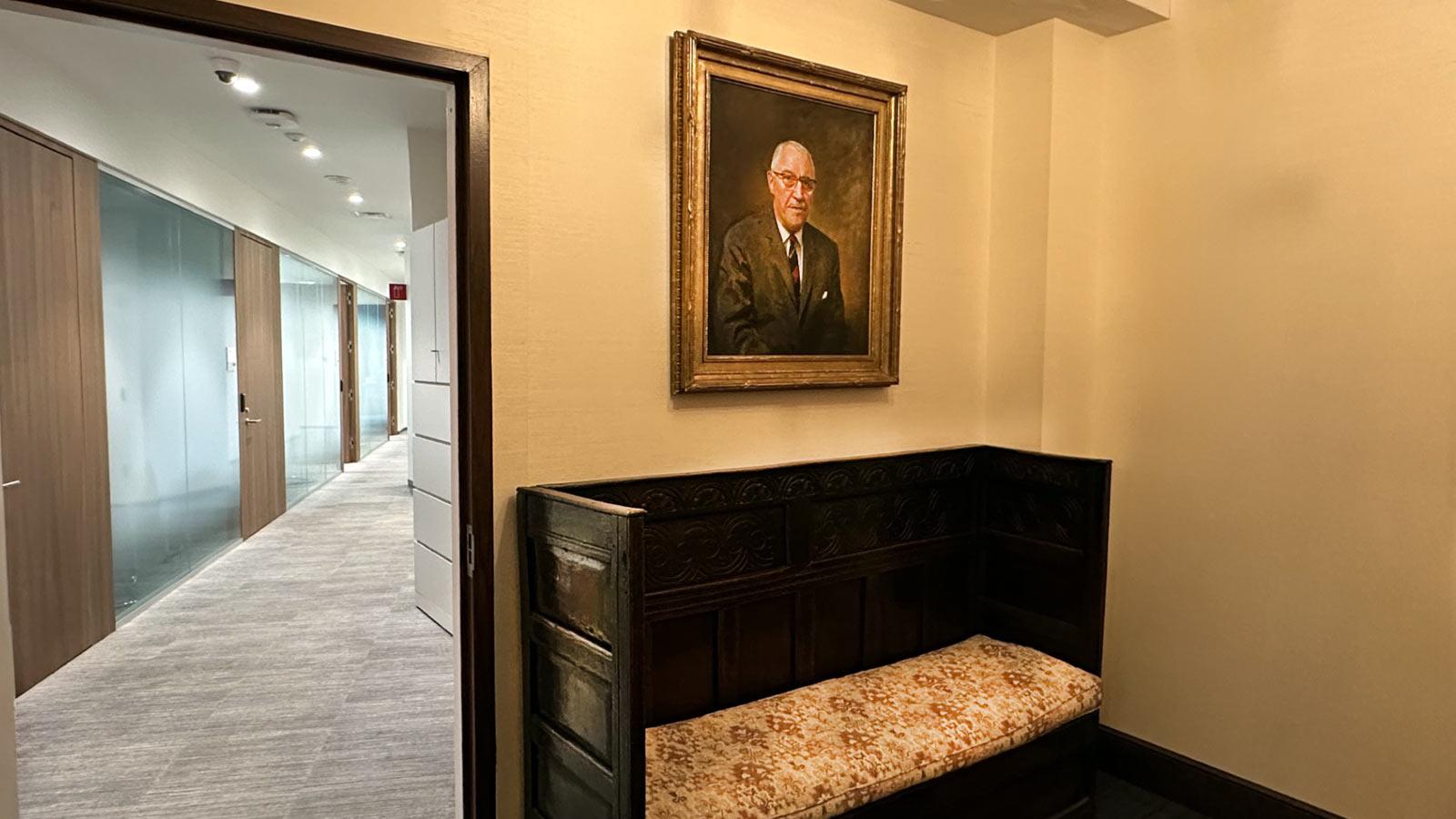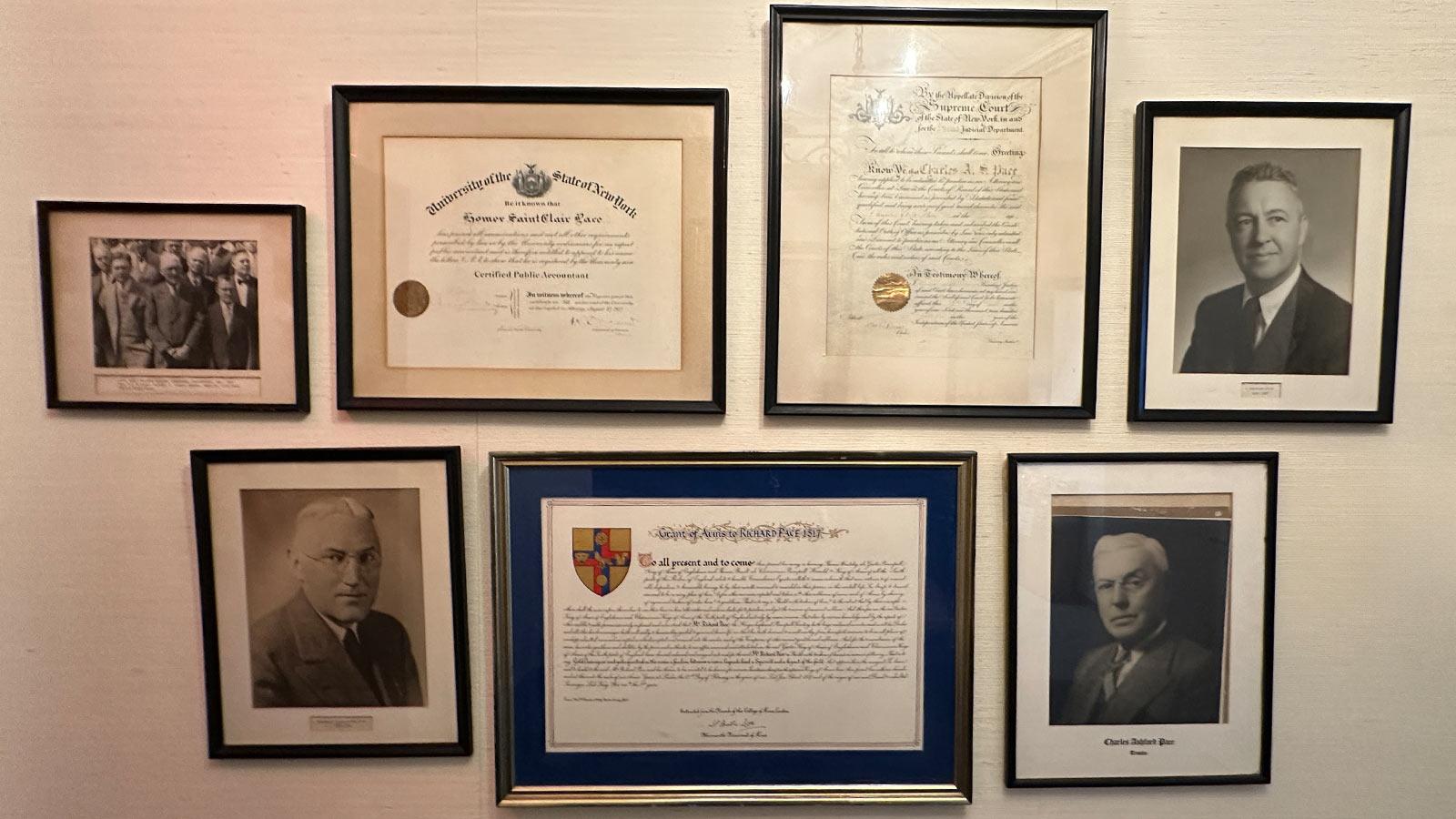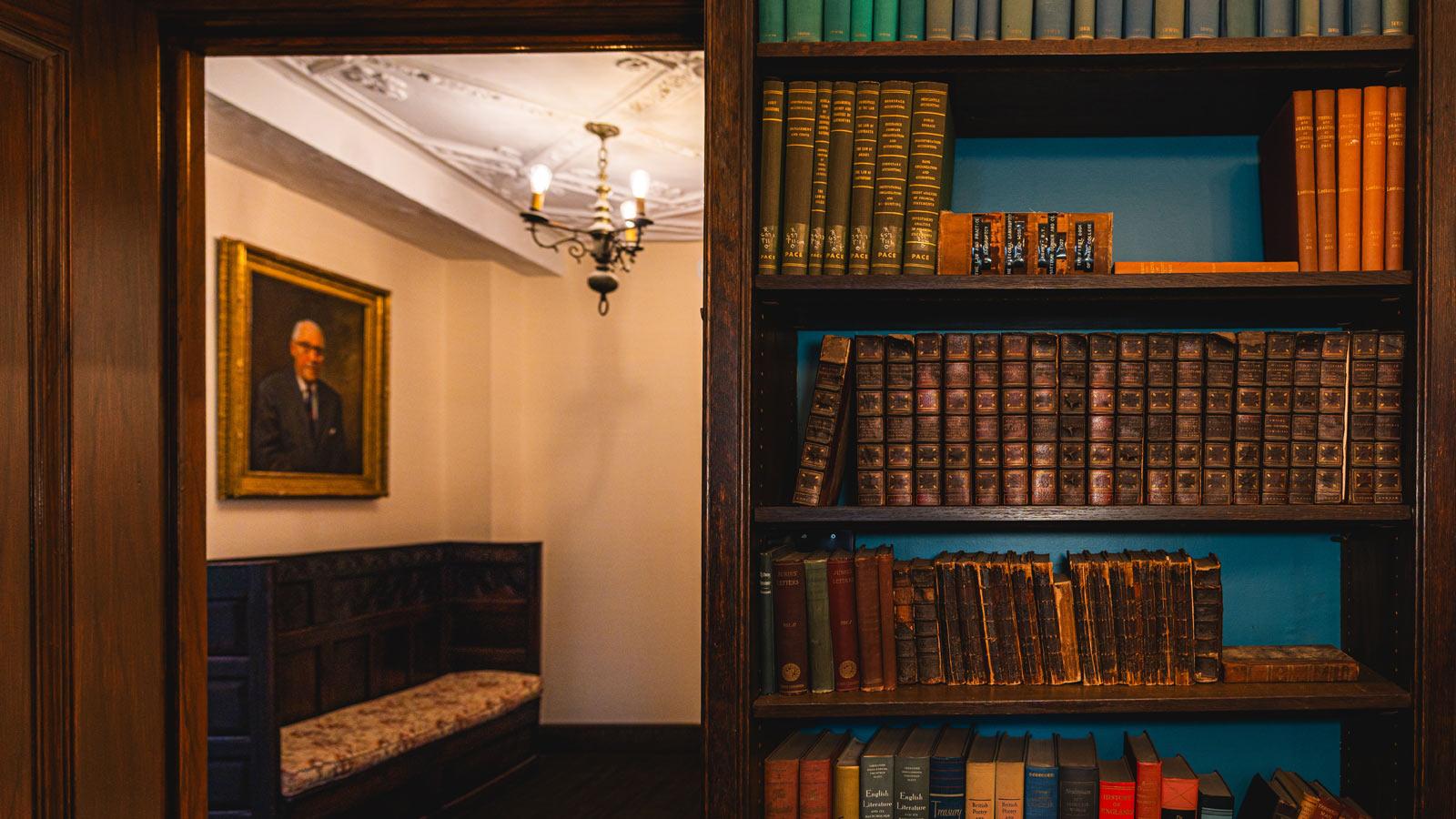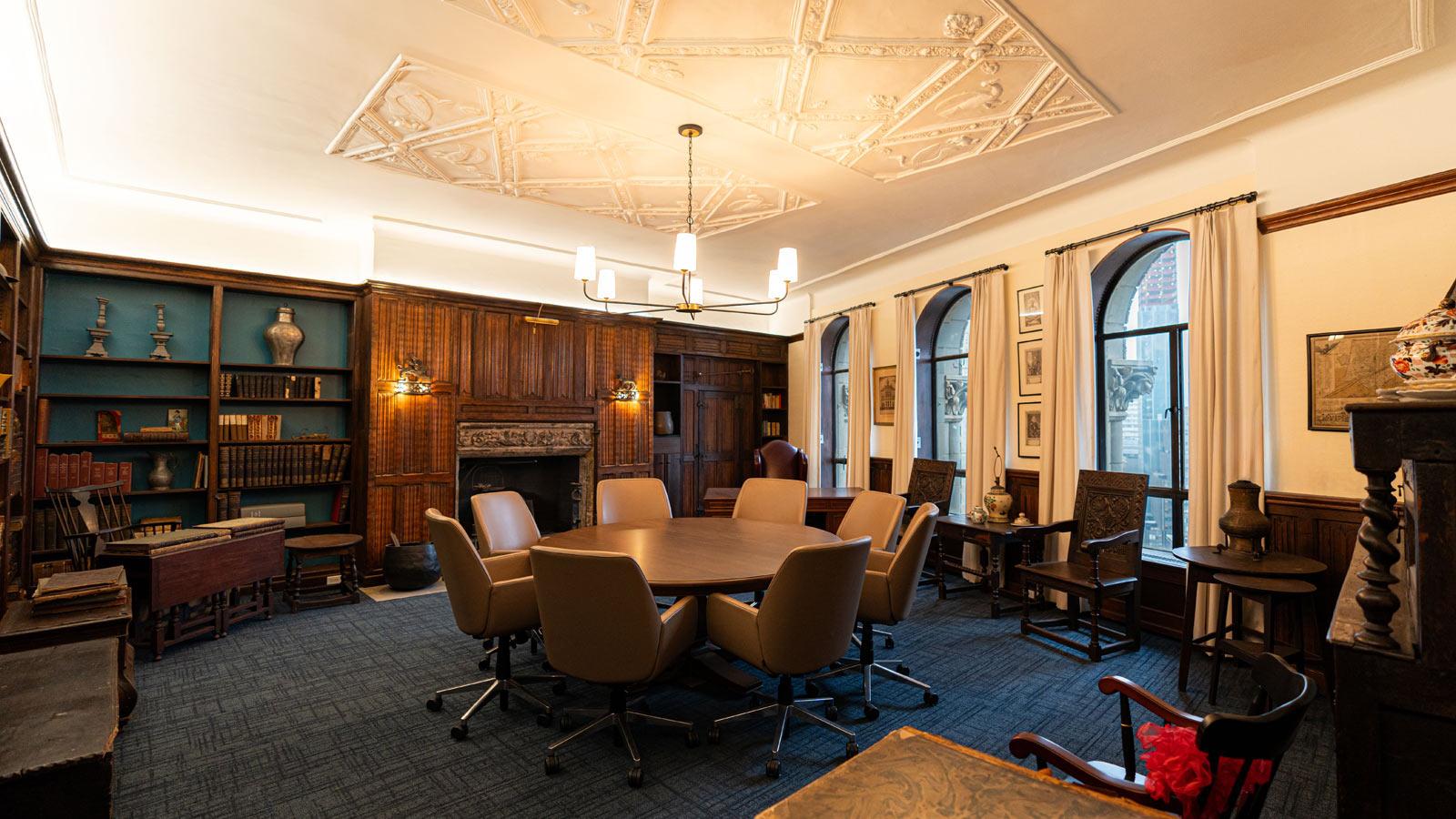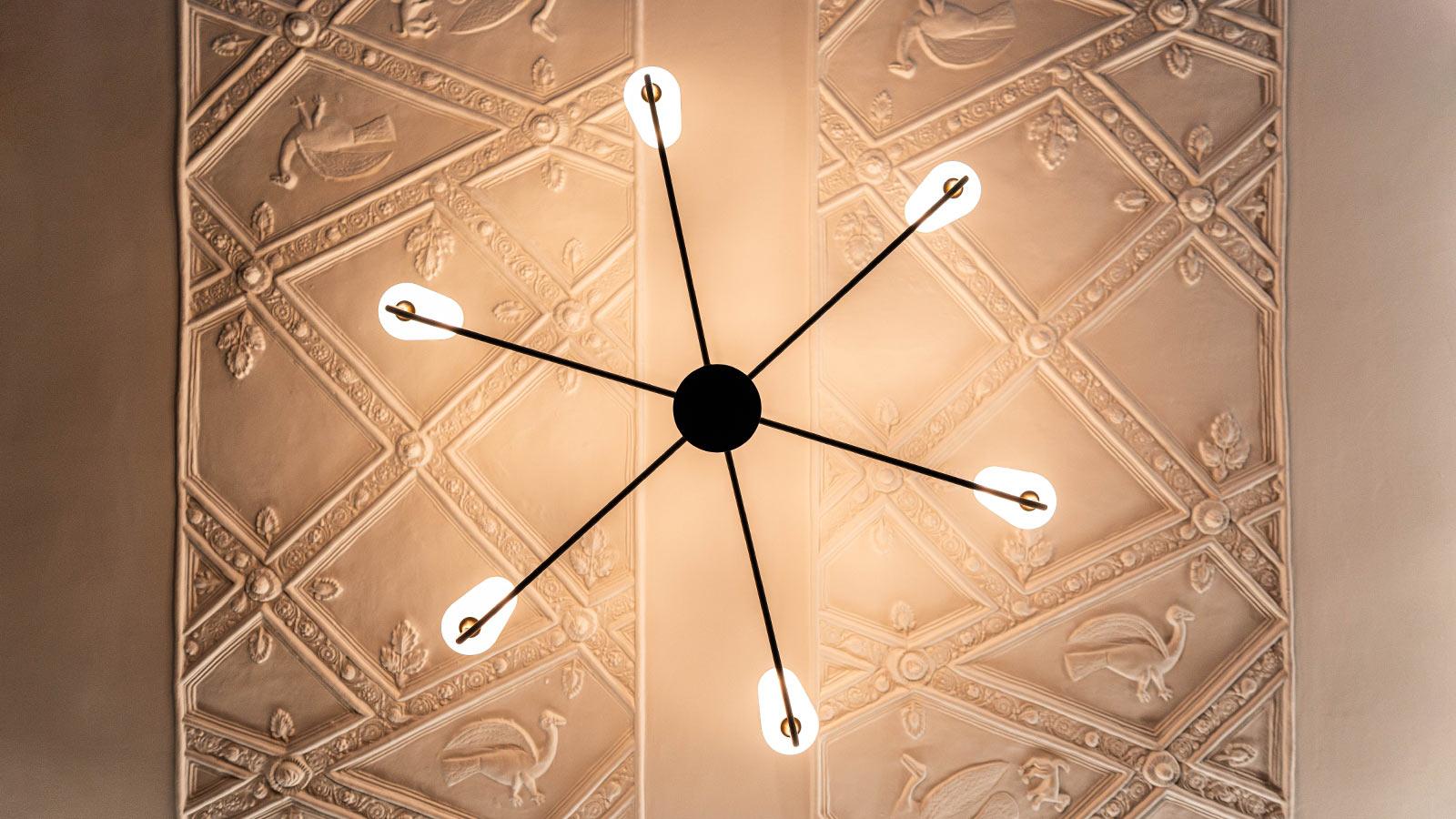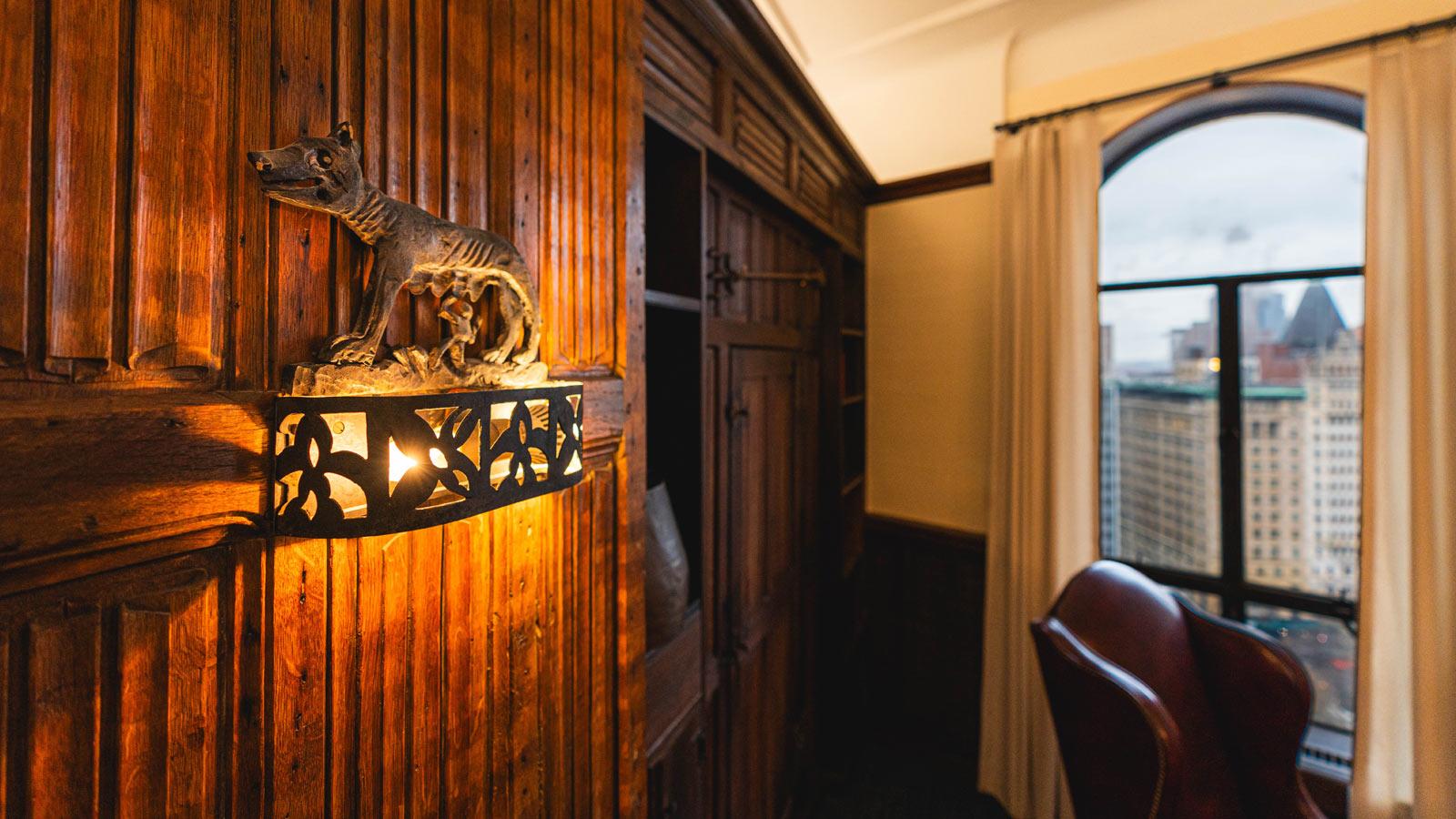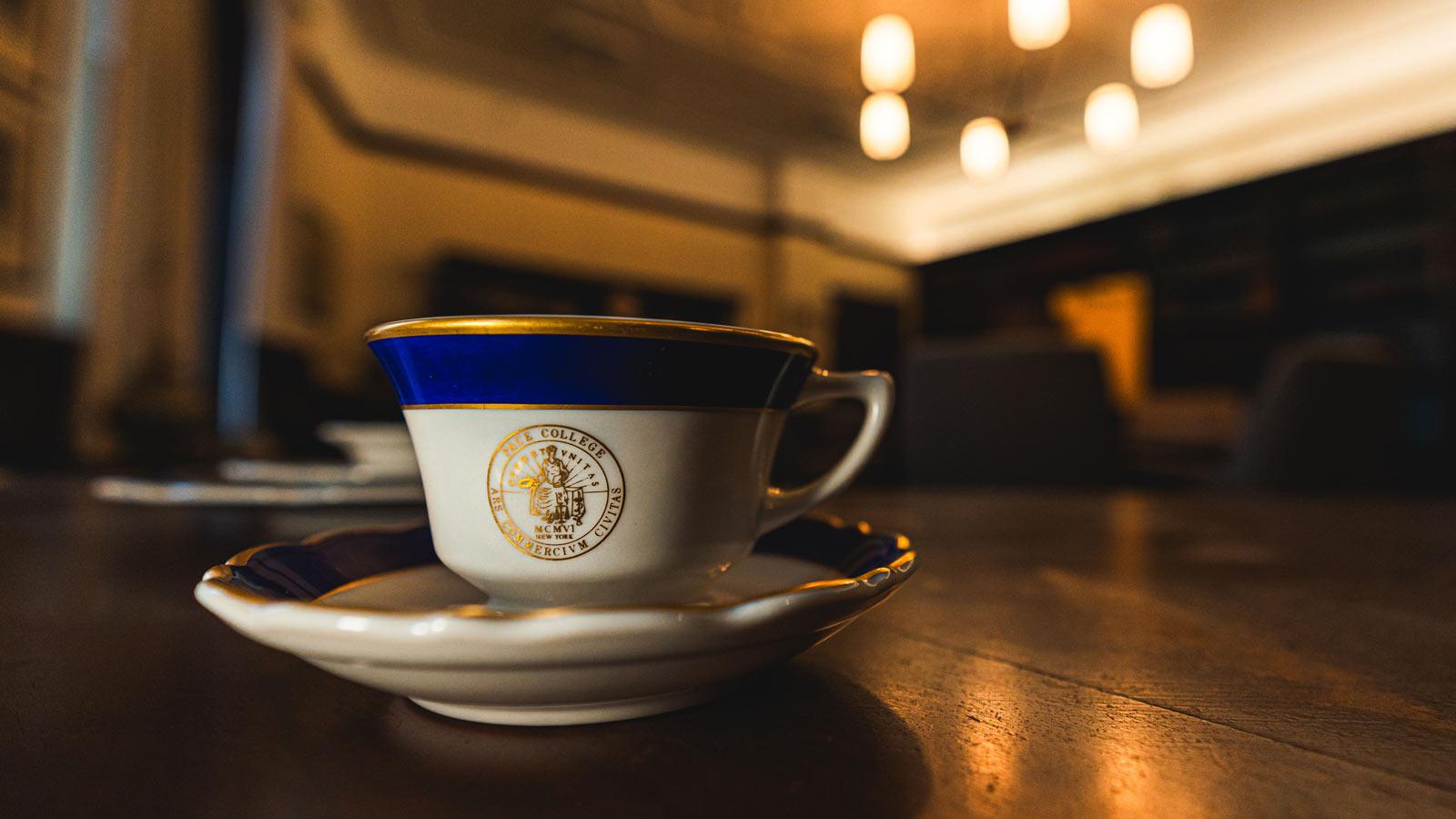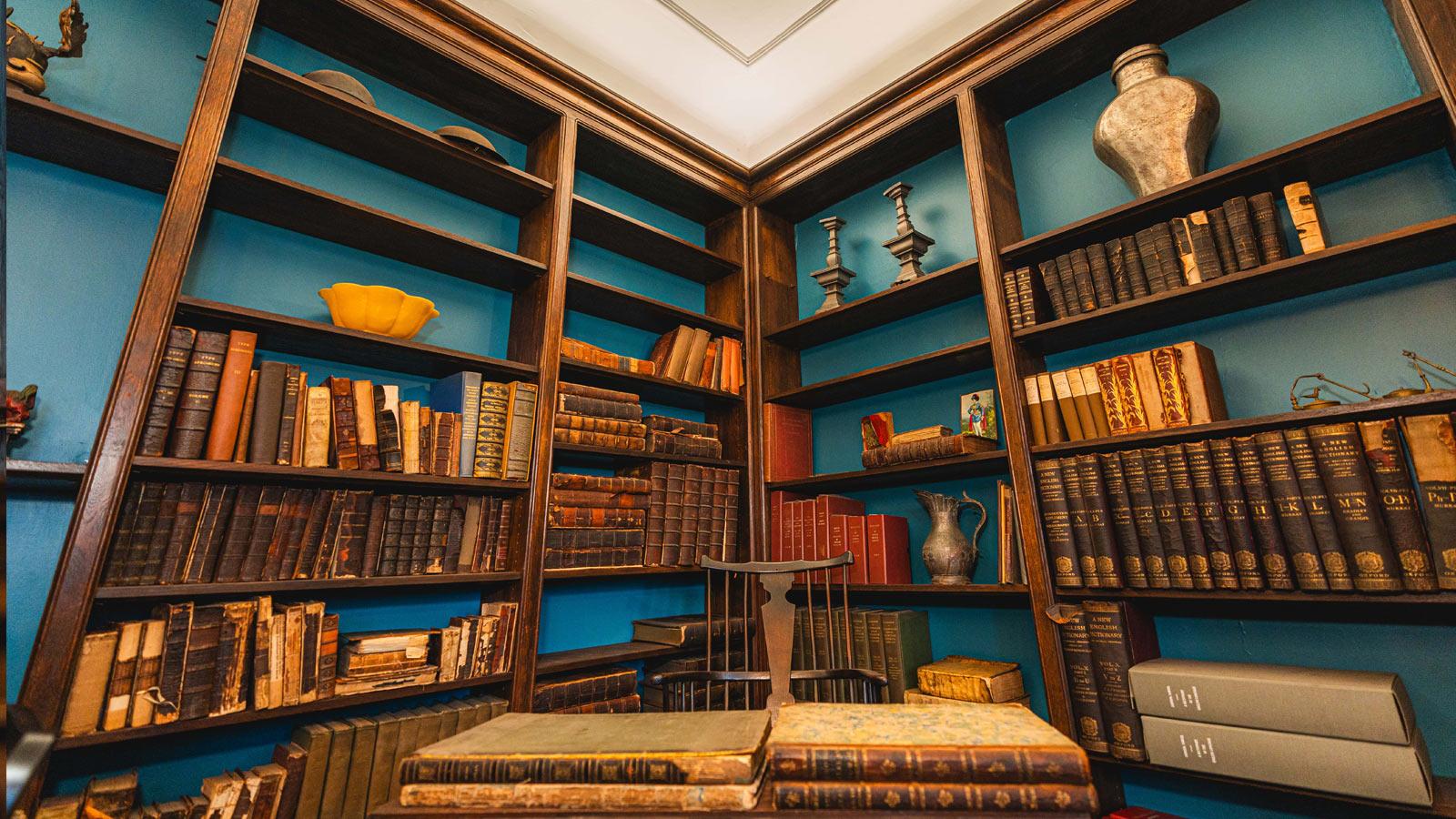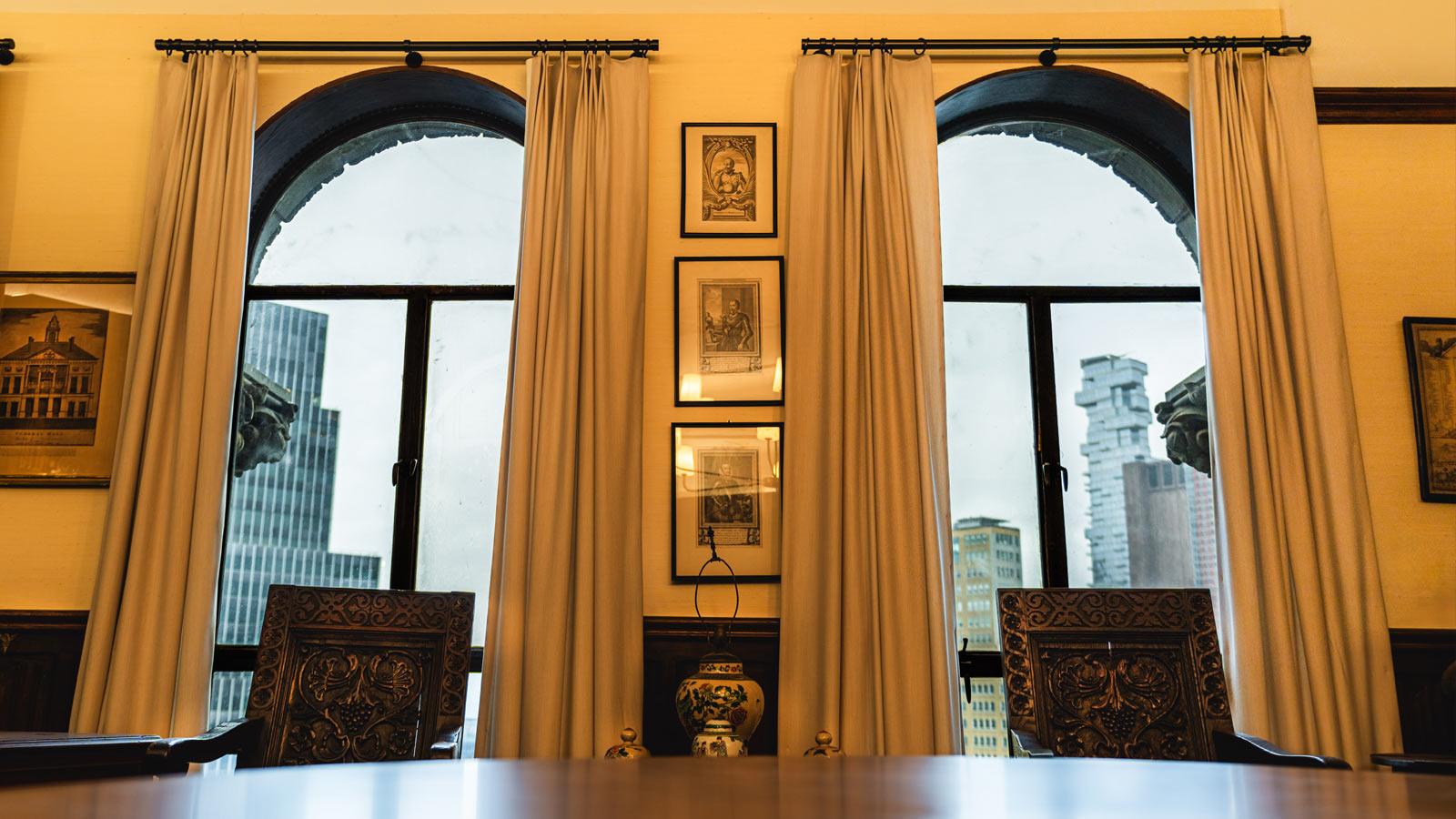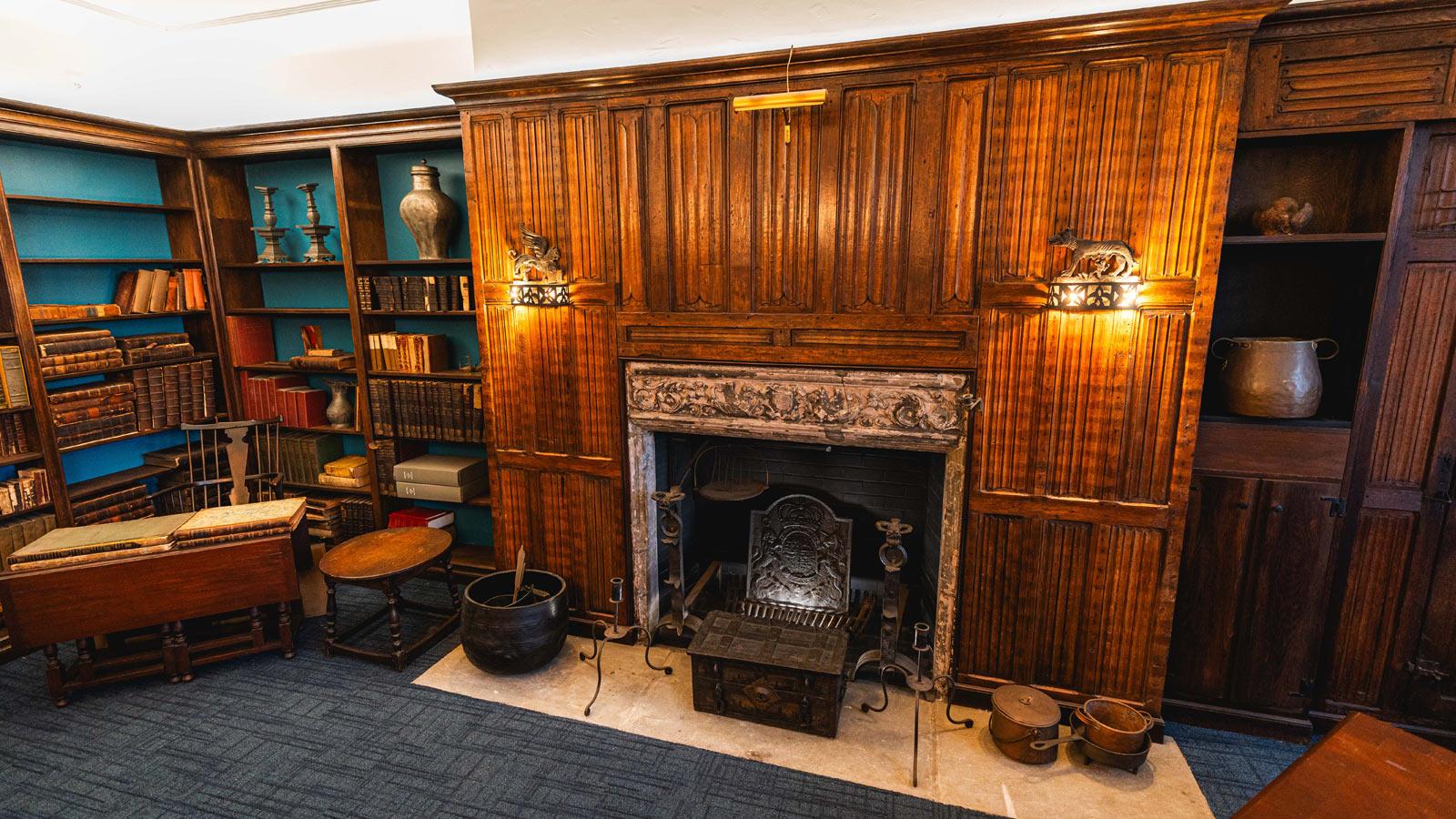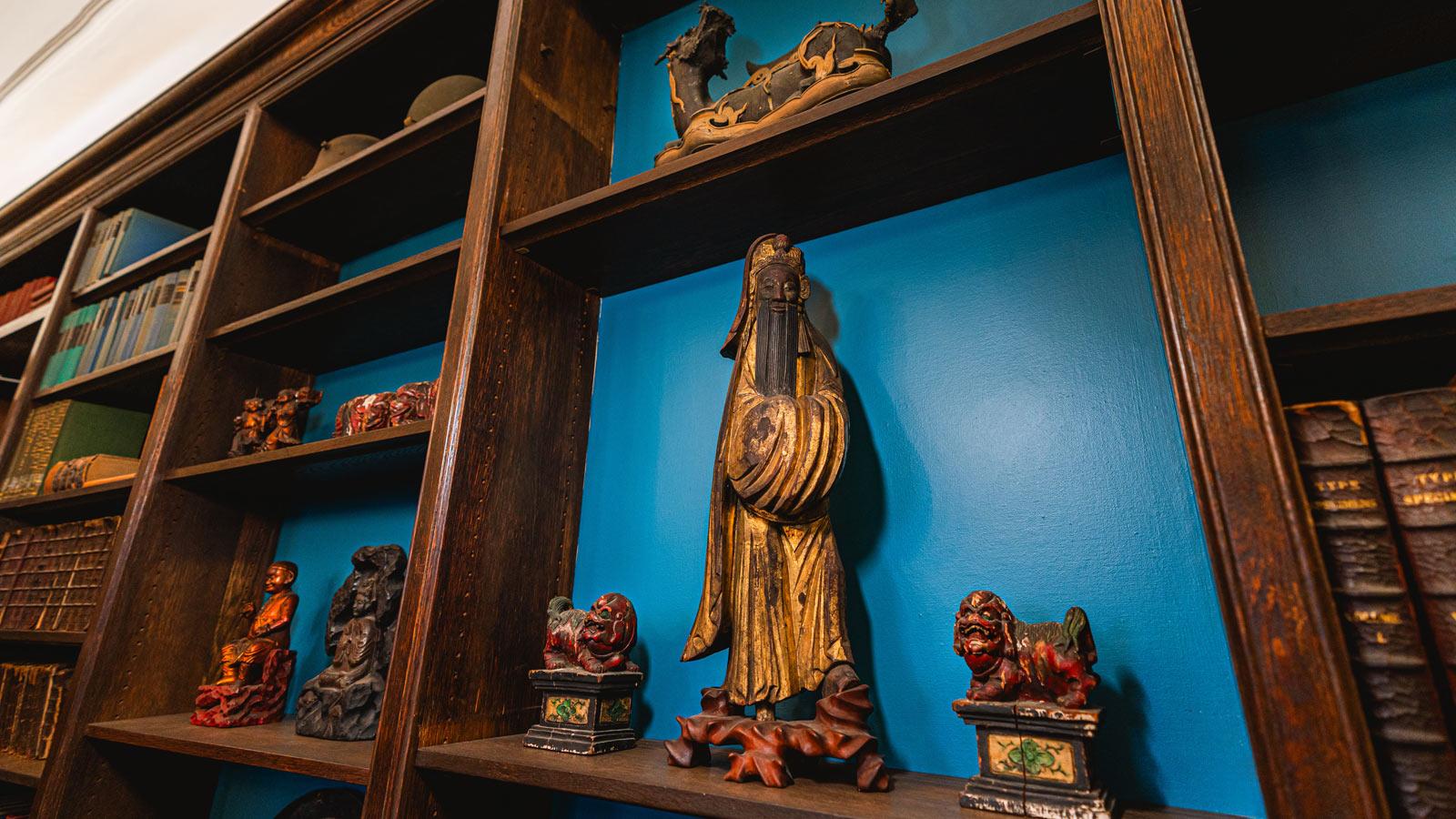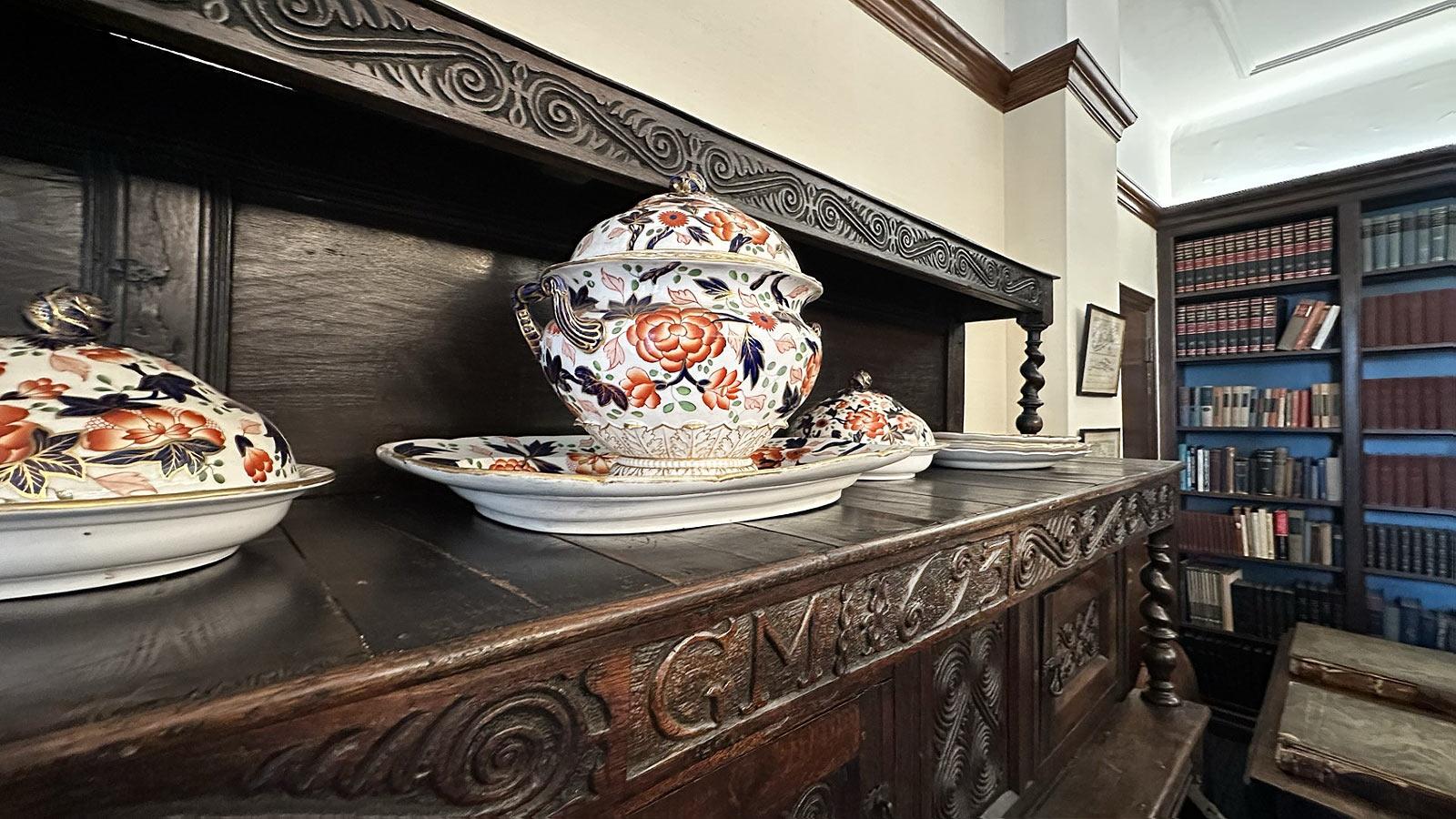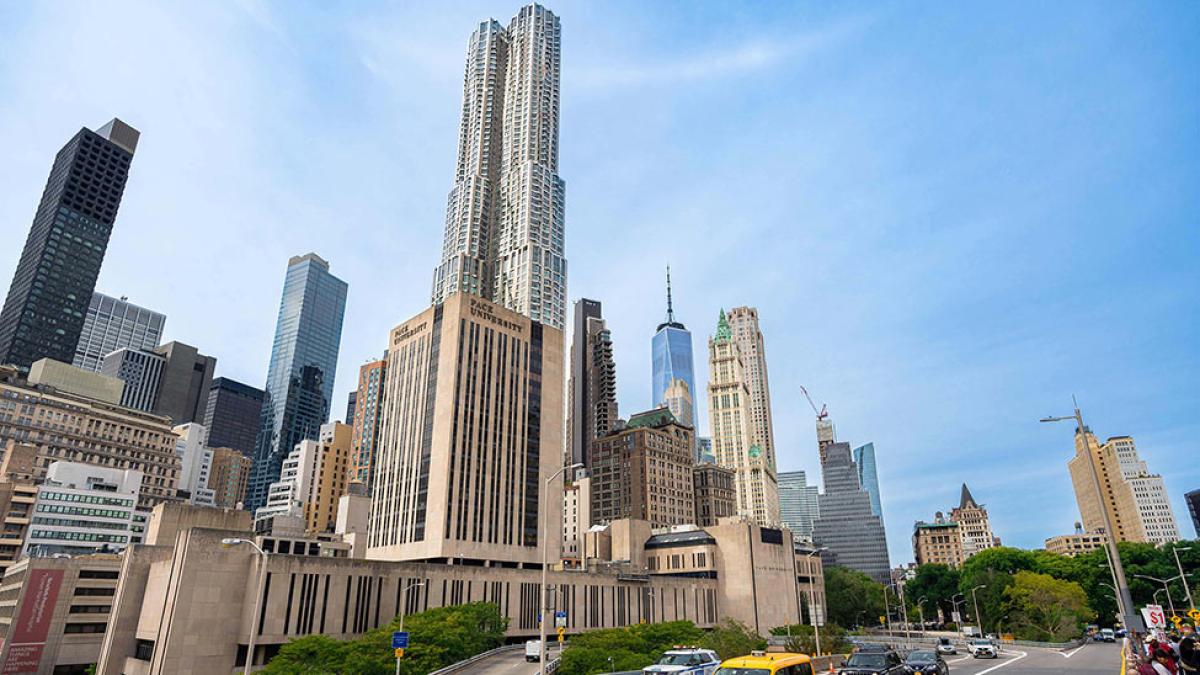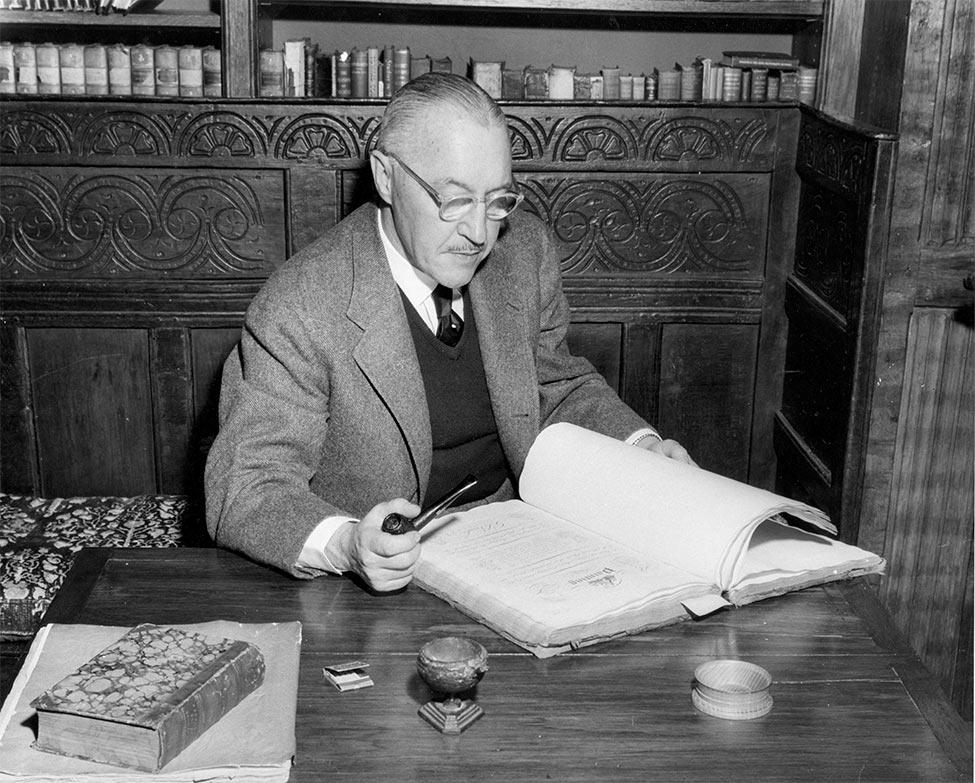
Inside the Pace Study
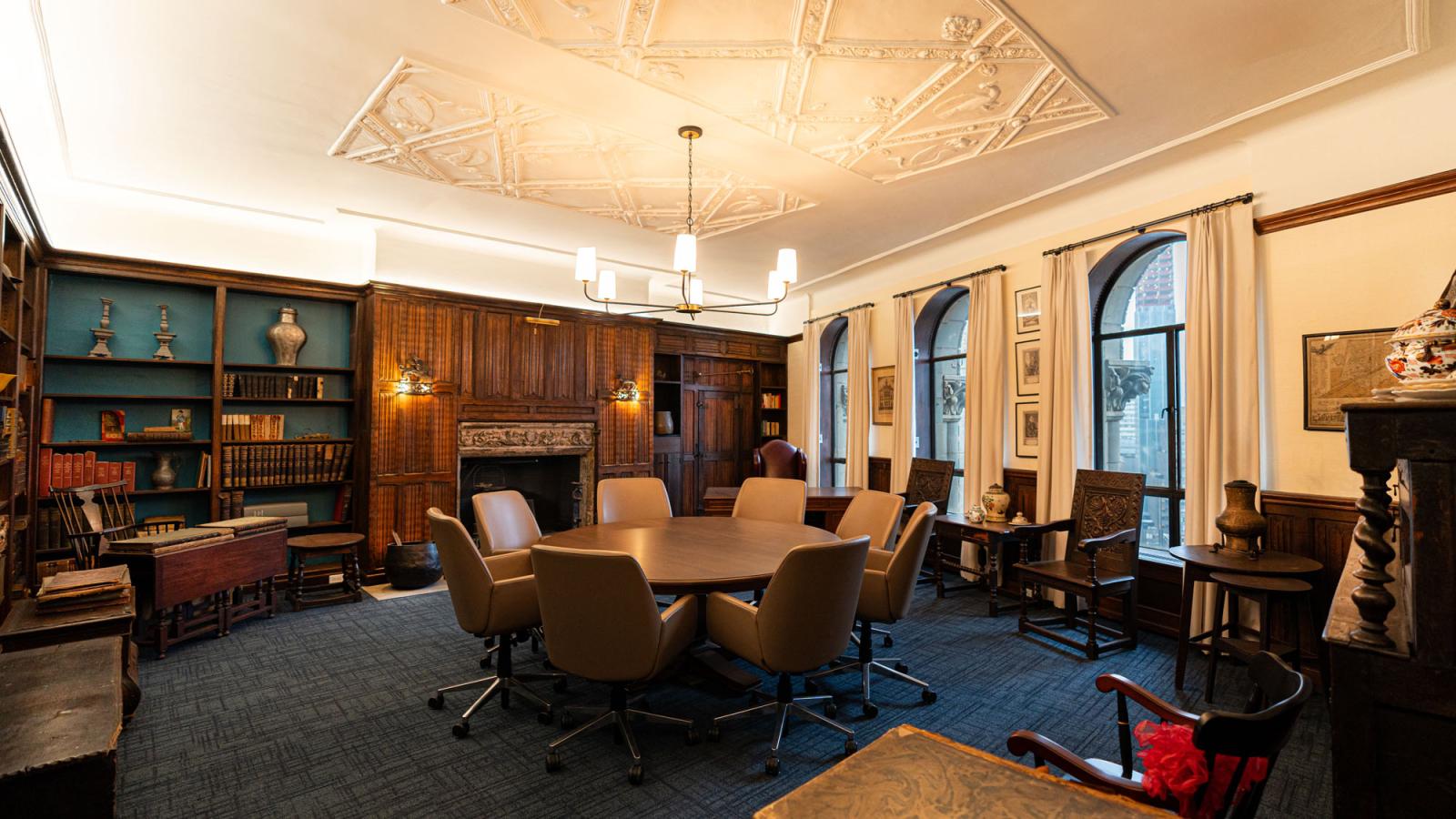
Nestled in a corner of the 16th floor of the iconic 41 Park Row, a building steeped in history, the Pace Study is a hidden gem. Erected in 1854 and later revamped in 1888, this landmark building was the original home of the New York Times and found its way into the hands of Pace College in 1951. Within its walls, the Study served as the workspace for Robert S. Pace, the second president of Pace University and son of co-founder Homer Pace. Nowadays, it's a haven for small, but significant University meetings.

Situated on the University’s executive floor, tucked away amidst the ultramodern office spaces and well-lit hallways, is a living memorial to Pace’s rich history. Through the anteroom, adorned with a decorative plaster ceiling and an oil painting of Robert S. Pace, is the Pace Study—restored, curated, and well-cared for.
Though impressive at first look, it’s the little details that tell the greatest story. Look closely and you'll find a trove of treasures reflecting the diverse passions of Homer Pace, a number-cruncher by trade and an avid book collector and wordsmith at heart.
Special thanks to the Campus Planning and Facilities team, University Curator and Dyson professor Kim de Beaumont, PhD; and University Archivist Ellen Sowchek for providing context and information regarding the contents of the Pace Study.
See Inside the Pace Study
More from Pace Magazine
Through Show and Spell, a captivating game designed to enhance social and emotional learning in children, Pace's Stan Royzman, PsyD, is helping children in a way that is simultaneously engaging and seeks to bolster positive therapeutic outcomes.
Through a $1.48 million grant, Pace is providing a blueprint for large-scale energy-efficient projects.
Through a grant from the New York State Department of education, School of Education Professor Jennifer Pankowski is helping students with disabilities to thrive at Pace and beyond.
